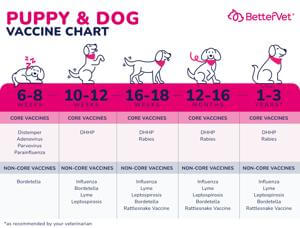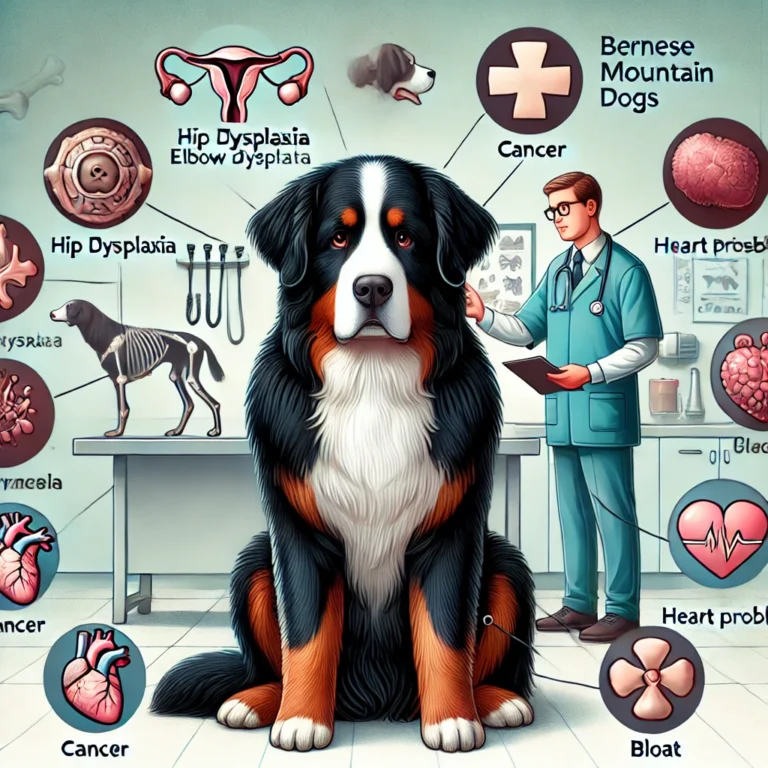Best Effective Natural Remedies for Healing Dog Skin Issues
I. Introduction
As pet owners, we all want the best for our furry companions. When it comes to our dogs’ health, their skin is often an overlooked yet crucial aspect of their overall well-being. Skin issues can cause discomfort, pain, and even lead to more serious health problems if left untreated. In recent years, there has been a growing interest in holistic care approaches for addressing canine skin health.
A. Importance of holistic care in dog skin health
Holistic care takes into account the whole animal, not just the symptoms of a particular condition. This approach recognizes that skin issues may be manifestations of underlying health problems or imbalances in the dog’s overall system. By addressing the root causes and supporting the body’s natural healing processes, holistic care aims to provide long-lasting relief and improved overall health.
B. Benefits of natural remedies
Natural remedies offer several advantages when it comes to treating dog skin issues:
- Fewer side effects: Many natural treatments are gentler on the body and less likely to cause adverse reactions compared to some pharmaceutical options.
- Cost-effective: Natural ingredients are often more affordable and readily available than prescription medications.
- Multipurpose: Many natural remedies have multiple benefits, addressing various aspects of skin health simultaneously.
- Support overall health: Natural treatments often provide additional health benefits beyond just treating the skin condition.
C. Integrating conventional and alternative treatments
While natural remedies can be highly effective, it’s important to note that they should not always replace conventional veterinary care. The best approach often involves integrating natural treatments with conventional medicine under the guidance of a veterinarian. This combination can provide the most comprehensive care for your dog’s skin health.
II. Understanding Common Canine Skin Problems
Before diving into natural remedies, it’s crucial to understand the most common skin issues that affect dogs. Recognizing these conditions can help you identify problems early and seek appropriate treatment.
A. Acral lick granuloma
Acral lick granulomas, also known as lick granulomas, are self-inflicted wounds caused by excessive licking or chewing. These lesions typically appear on the legs or paws and can be challenging to treat due to the compulsive behavior associated with them.
B. Atopic dermatitis
Atopic dermatitis is an allergic skin condition triggered by environmental allergens such as pollen, dust mites, or mold. It causes intense itching, redness, and inflammation of the skin.
C. Hot spots (acute moist dermatitis)
Hot spots are localized areas of skin inflammation and infection that develop quickly, often due to allergies, insect bites, or excessive licking. They appear as red, moist, and often painful lesions.
D. Allergic dermatitis
Allergic dermatitis can be caused by various factors, including food allergies, environmental allergens, or flea bites. Symptoms include itching, redness, and skin irritation.
E. Yeast infections
Yeast infections, typically caused by the Malassezia fungus, can lead to itchy, irritated skin, often with a distinct odor. These infections commonly occur in skin folds or ears.
F. Seborrhea
Seborrhea is a skin condition characterized by excessive production of sebum, leading to oily, flaky skin. It can be either a primary condition or secondary to other underlying health issues.

III. Natural Ingredients for Healing
Nature provides us with a wealth of ingredients that can effectively address various dog skin issues. Here are some of the most potent natural remedies:
A. Essential oils
Essential oils can be powerful allies in treating skin conditions, but it’s crucial to use them correctly and safely, as some can be toxic to dogs if misused.
- Lavender: Known for its calming and antimicrobial properties, lavender oil can help soothe irritated skin and promote healing.
- Tea tree (use with caution): While effective against bacteria and fungi, tea tree oil should be used very sparingly and only under veterinary guidance, as it can be toxic if ingested or used in high concentrations.
- Chamomile: This gentle oil has anti-inflammatory and soothing properties, making it useful for calming irritated skin.
B. Herbs
Herbal remedies have been used for centuries to treat various ailments, including skin conditions.
- Calendula: This herb has powerful anti-inflammatory and wound-healing properties, making it excellent for treating cuts, scrapes, and irritated skin.
- Aloe vera: Well-known for its soothing and healing properties, aloe vera can help relieve itching and promote skin repair.
- Comfrey: This herb contains allantoin, which promotes cell growth and skin healing. However, it should be used externally only and with caution.
C. Supplements
Certain supplements can support skin health from the inside out.
- Omega-3 fatty acids: These essential fats help reduce inflammation and support a healthy skin barrier.
- Probiotics: Beneficial bacteria can help balance the skin’s microbiome and boost the immune system.
- Vitamin E: This antioxidant vitamin supports skin health and can help soothe dry, itchy skin when applied topically.
Natural Ingredients and Their Benefits for Dog Skin:
| Ingredient | Benefits | Best For |
|---|---|---|
| Lavender oil | Antimicrobial, calming | Hot spots, anxiety-related licking |
| Calendula | Anti-inflammatory, wound healing | Lick granulomas, minor cuts |
| Omega-3s | Reduce inflammation, support skin barrier | Allergic dermatitis, dry skin |
This table outlines the natural ingredients, their benefits, and their best uses for dog skin health.
IV. Home Remedies That Work
Many effective treatments for dog skin issues can be prepared right in your kitchen. Here are some tried-and-true home remedies:
A. Oatmeal baths for itchy skin
Oatmeal has long been used to soothe itchy, irritated skin. To prepare an oatmeal bath for your dog:
- Grind plain, unflavored oatmeal into a fine powder.
- Fill the bathtub with warm water and add the oatmeal powder.
- Let your dog soak in the mixture for 10-15 minutes, making sure to rinse thoroughly afterward.
This treatment can provide relief from itching associated with allergies or dry skin.
B. Apple cider vinegar rinses for yeast infections
Apple cider vinegar has antifungal properties that can help combat yeast infections. To use:
- Mix equal parts water and raw, unfiltered apple cider vinegar.
- Apply the solution to affected areas using a clean cloth or spray bottle.
- Do not use on open wounds or raw skin, as it may cause stinging.
C. Coconut oil massages for dry skin and hot spots
Coconut oil has antimicrobial and moisturizing properties that can benefit various skin conditions:
- Warm a small amount of organic, unrefined coconut oil in your hands.
- Gently massage the oil into your dog’s skin, focusing on dry or affected areas.
- Allow the oil to absorb for a few minutes before wiping off any excess.
D. Green tea compresses for inflammation
Green tea contains antioxidants that can help reduce inflammation and soothe irritated skin:
- Brew a strong cup of green tea and allow it to cool.
- Soak a clean cloth in the tea and apply it to the affected area for 5-10 minutes.
- Repeat 2-3 times daily as needed.
E. Epsom salt soaks for lick granulomas
Epsom salt can help draw out infections and reduce inflammation in lick granulomas:

- Dissolve 1 cup of Epsom salt in a gallon of warm water.
- Soak the affected limb in the solution for 5-10 minutes.
- Gently pat the area dry and apply a healing ointment if recommended by your vet.
V. Preventative Care for Future Skin Health
While treating existing skin issues is important, prevention is always better than cure. Here are some strategies to maintain your dog’s skin health and prevent future problems:
A. Proper nutrition and hydration
A balanced diet rich in essential nutrients is crucial for maintaining healthy skin and coat. Ensure your dog’s food contains high-quality proteins, healthy fats, and necessary vitamins and minerals. Always provide fresh, clean water to keep your dog well-hydrated, which is essential for skin health.
B. Regular grooming and bathing
Establish a regular grooming routine to remove dead hair, distribute natural oils, and check for any skin abnormalities. Bathe your dog as needed with a gentle, dog-specific shampoo to keep the skin clean without over-drying.
C. Flea and tick prevention
Parasites can cause significant skin irritation and lead to more serious health issues. Use vet-recommended flea and tick prevention methods consistently to protect your dog.
D. Stress reduction techniques
Stress can exacerbate skin problems and lead to behaviors like excessive licking. Provide your dog with regular exercise, mental stimulation, and a calm environment to reduce stress levels.
E. Environmental allergen management
If your dog suffers from environmental allergies, take steps to minimize exposure:
- Wipe your dog’s paws and coat after walks to remove allergens.
- Use air purifiers in your home to reduce airborne allergens.
- Wash your dog’s bedding regularly in hot water.
- Keep your home clean and free of dust and mold.
VI. When to Seek Veterinary Care
While natural remedies can be very effective, there are times when professional veterinary care is necessary. Be aware of the following signs that indicate a need for veterinary attention:
A. Signs of severe or worsening conditions
If your dog’s skin condition is rapidly worsening, spreading to new areas, or not improving with home treatment, it’s time to consult a vet.
B. Infections not responding to home treatment
If you suspect an infection (indicated by redness, swelling, heat, or discharge) that doesn’t improve with natural remedies within a few days, seek veterinary care.
C. Systemic symptoms (fever, lethargy)
If your dog develops additional symptoms such as fever, loss of appetite, or unusual lethargy along with skin issues, this could indicate a more serious underlying condition requiring immediate veterinary attention.
VII. Integrating Natural Remedies with Conventional Treatments
The most effective approach to treating dog skin issues often involves a combination of natural and conventional treatments. Here’s how to integrate these approaches:
A. Complementary use of natural remedies
Many natural remedies can be used alongside conventional treatments to enhance their effectiveness or provide additional relief. For example, you might use a prescribed antibiotic ointment for a skin infection while also applying calendula to speed healing and reduce inflammation.
B. Potential interactions to be aware of
While natural remedies are generally safe, some can interact with conventional medications. Always inform your veterinarian about any natural treatments you’re using to avoid potential conflicts.
C. Importance of veterinary supervision
Even when using natural remedies, it’s crucial to keep your veterinarian informed and involved in your dog’s treatment plan. They can provide guidance on the most effective combination of treatments and monitor your dog’s progress.
[Table 2: Comparison of Natural vs. Conventional Treatments]
| Skin Issue | Natural Treatment | Conventional Treatment |
|---|---|---|
| Lick granuloma | Calendula ointment, stress reduction | Antibiotics, anti-inflammatory drugs |
| Atopic dermatitis | Omega-3s, oatmeal baths | Corticosteroids, immunosuppressants |
| Yeast infection | Apple cider vinegar rinses | Antifungal medications |
VIII. Conclusion
A. Long-term benefits of natural treatments
Incorporating natural remedies into your dog’s skin care routine can provide numerous long-term benefits:
- Improved overall health: Many natural treatments support not just skin health but overall well-being.
- Reduced reliance on pharmaceuticals: Natural remedies can often manage minor skin issues without the need for stronger medications.
- Strengthened immune system: Many natural ingredients have immune-boosting properties that can help prevent future skin problems.
B. Importance of a holistic approach to skin health
Remember that skin health is often a reflection of overall health. A holistic approach that considers diet, environment, stress levels, and physical health is key to maintaining healthy skin and preventing future issues.
C. Empowering pet owners in their dog’s care
By learning about natural remedies and preventative care, you’re taking an active role in your dog’s health. This knowledge empowers you to make informed decisions about your pet’s care and work more effectively with your veterinarian to ensure the best possible outcomes.
In conclusion, natural remedies offer a powerful toolkit for addressing dog skin issues. When used responsibly and in conjunction with veterinary care when needed, these treatments can provide effective, gentle relief for a wide range of skin conditions. By incorporating these remedies into a comprehensive care plan that includes proper nutrition, regular grooming, and preventative measures, you can help ensure that your furry friend maintains healthy, comfortable skin for years to come.

Remember, every dog is unique, and what works for one may not work for another. Always observe your dog closely when trying new treatments and consult with your veterinarian if you have any concerns. With patience, care, and the right approach, you can help your dog achieve optimal skin health naturally.







